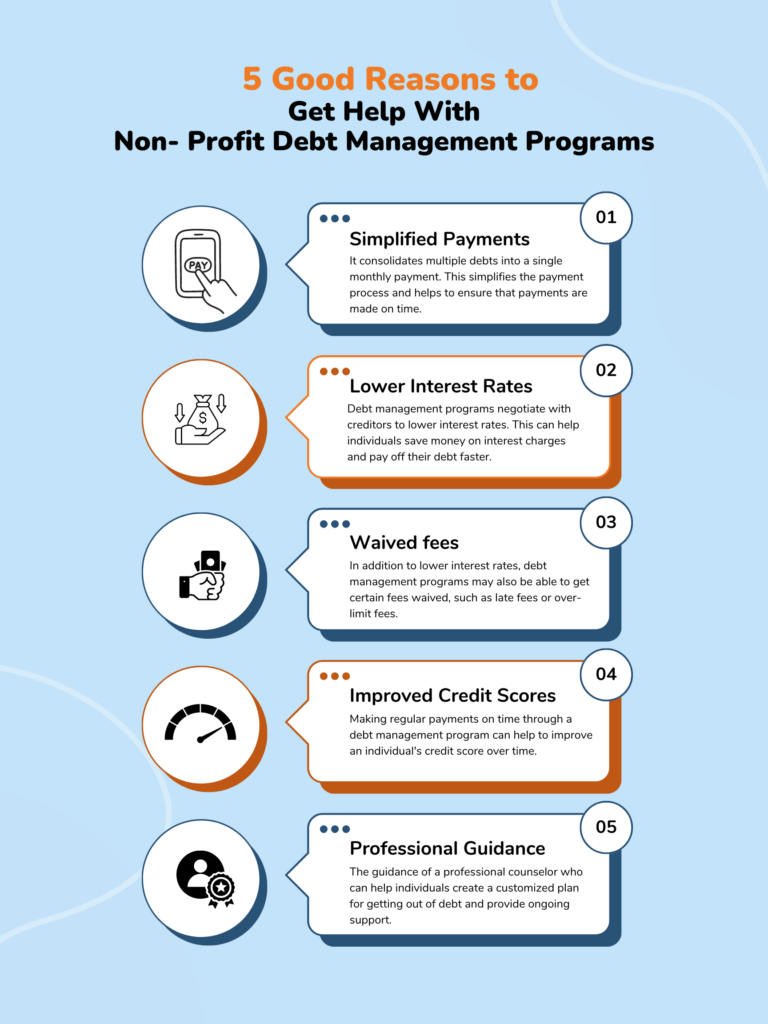Specialist Tips and Strategies for Applying a Successful Debt Management Plan
When it comes to browsing the intricacies of financial debt monitoring, having a well-balanced plan is essential for achieving monetary stability. From assessing your present economic standing to negotiating with financial institutions, each action plays a pivotal function in shaping an effective financial obligation administration strategy.
Assessing Your Current Financial Situation
Prior to starting a financial debt monitoring strategy, it is important to completely assess your existing financial standing. Comprehending your economic circumstance is the foundational action towards efficiently taking care of and decreasing your financial debt. Begin by compiling a breakdown of all your debts, including outstanding equilibriums, passion prices, and minimum regular monthly payments. This will certainly offer a clear summary of the extent of your financial commitments. In addition, assess your revenue sources and month-to-month costs to establish your disposable revenue readily available for debt payment.

Establishing a Realistic Budget
Comprehending your current monetary situation prepares for creating a practical budget that lines up with your debt monitoring goals and financial capabilities. When developing a budget plan, it's vital to properly track your revenue, expenditures, and financial obligation responsibilities. Begin by noting all resources of revenue, consisting of salaries, rewards, and any type of additional earnings. Next, detail your repaired costs such as lease or home mortgage repayments, utilities, insurance, and loan payments. Variable expenditures like grocery stores, enjoyment, and transportation should also be accounted for. By categorizing your costs, you can determine areas where you may need to cut down to liberate funds for financial debt settlement.

Focusing On and Tackling Debts
To efficiently restore control of your funds and job towards monetary security, focusing on and tackling your debts is a vital action in your debt administration plan. Start by listing all your debts, consisting of bank card, finances, and any various other impressive balances. Determine high-interest debts that are costing you the most cash and focus on paying them off initially. By concentrating on these high-interest financial debts, you can save money in the long run and minimize the complete quantity you owe.
After recognizing your high-interest financial debts, take into consideration utilizing strategies like the financial obligation snowball or financial debt avalanche method to pay them off systematically. The debt snowball technique includes settling the tiniest debts initially, while the financial obligation avalanche technique prioritizes financial debts with the highest rates of interest. Pick the approach that straightens ideal with your monetary goals and encourages you to maintain making progression.
Furthermore, take into consideration bargaining with financial institutions for reduced rates of interest or establishing up a layaway plan if you're having a hard time to satisfy your current commitments. Looking for assistance from a credit score counselor or economic consultant can likewise offer important understandings and assistance on how to effectively tackle your financial obligations - debt management plan services. By prioritizing and addressing your financial debts strategically, you can lead the way towards a debt-free future and enhanced economic health
Discussing With Financial Institutions
When involving in financial obligation administration, working out with lenders is an essential action in the direction of discovering mutually valuable remedies for financial debt settlement. Prior to launching arrangements, it is vital to have a clear understanding of your monetary circumstance, including your revenue, expenses, and the overall amount of financial obligation owed.

Building Healthy Monetary Routines
Incorporating consistent budgeting techniques is vital for growing healthy monetary behaviors. Budgeting allows people to track their earnings and expenses, enabling them to make educated choices concerning their financial priorities. Setting certain economic objectives, such as conserving for emergencies or retirement, can give a clear roadmap for handling cash successfully.
An additional secret aspect of building healthy and balanced economic behaviors is living within one's ways. This involves spending less than what is gained and staying clear of unnecessary financial obligation. Identifying and taking on a frugal state of mind between wants and needs can assist people make more sensible spending choices.
On a regular basis checking and reviewing monetary declarations credit rating records are essential routines that advertise financial awareness and duty. By staying educated regarding their economic standing, individuals can determine prospective issues at an early stage and take aggressive steps to address them.
Additionally, developing a cost savings routine, despite percentages, can contribute considerably to long-lasting economic here protection. Conserving frequently not just constructs an economic cushion for unanticipated costs yet also promotes a sense of technique and responsibility towards finance. By constantly practicing these practices, people can lay a strong structure for a secure financial future.
Conclusion
In final thought, implementing a successful financial obligation management strategy requires an extensive assessment of one's financial scenario, the advancement of a reasonable budget, prioritizing and tackling debts, working out with financial institutions, and building healthy and balanced financial routines (debt management plan services). By following these expert tips and strategies, individuals can take control of their financial resources and work in the direction of accomplishing economic security and liberty from debt
Comprehending your current financial situation lays the foundation for establishing a practical budget plan that aligns with your other debt monitoring objectives and economic abilities.To successfully restore control of your finances and work in the direction of monetary security, focusing on and tackling your debts is a crucial step in your financial debt administration strategy.After recognizing your high-interest financial debts, consider utilizing techniques like the financial debt snowball or debt avalanche approach to pay them off systematically. The debt snowball approach includes paying off the smallest financial obligations first, while the financial obligation avalanche technique focuses on financial visit this site right here obligations with the highest interest rates.When engaging in financial obligation monitoring, negotiating with financial institutions is a crucial action in the direction of finding equally advantageous services for debt settlement.